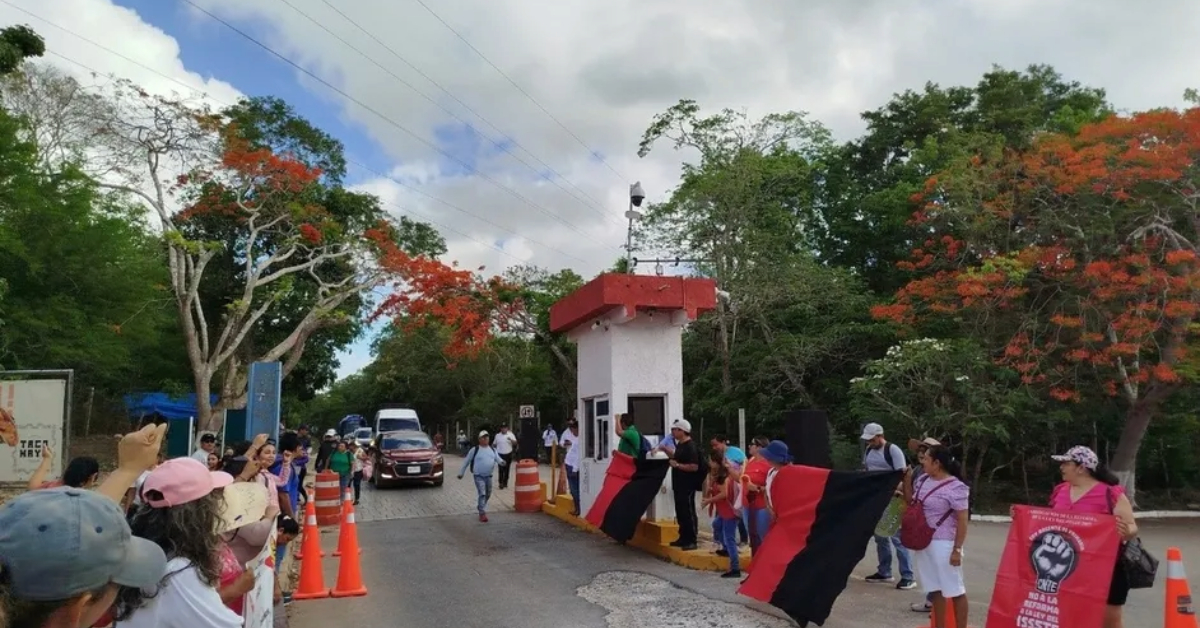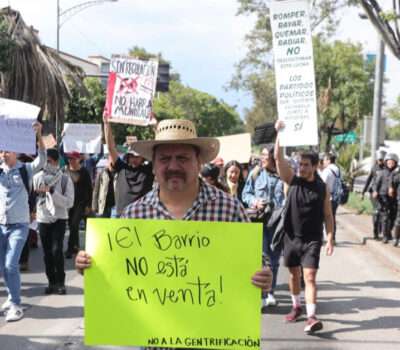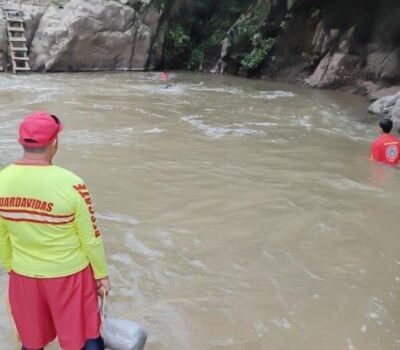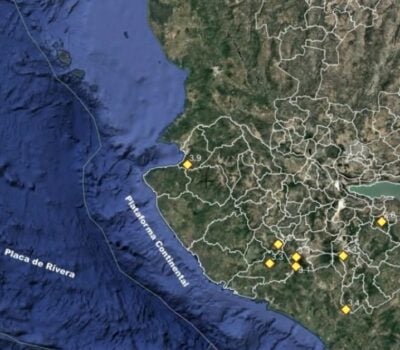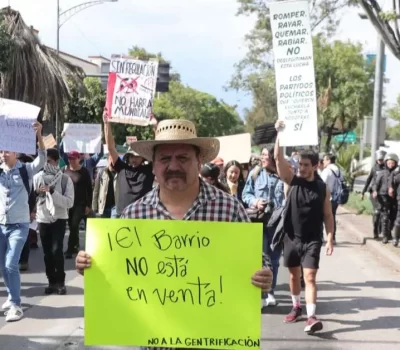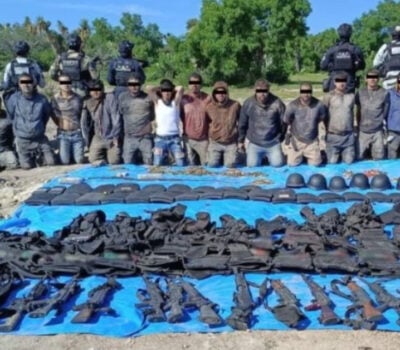On June 11, 2025, a group of teachers affiliated with the National Coordinator of Education Workers (CNTE) staged a peaceful demonstration at the main entrance to the Chichén Itzá archaeological site. The educators, who traveled from their base in the city of Valladolid, gathered at the ticket booths early in the afternoon to present a set of clear demands to federal and state authorities.
The protesters lined the access area with banners and cardboard signs. In bold letters, they called for improvements to their working conditions, specifically requesting higher salaries, larger year-end bonuses (aguinaldo) and enhancements to their pension system. They further urged the government to channel more investment into rural and indigenous schools across Yucatán, highlighting long-standing gaps in educational infrastructure and resources.
Crucially, the teachers made a point of allowing tourists to enter the site without obstruction. Though they occupied the ticketing area, they ensured that visitors could pass through freely, safeguarding the flow of commerce and the reputation of one of Mexico’s most-visited heritage sites. Numerous travelers commended the group’s decision to combine protest with hospitality, noting that the demonstration drew attention to social issues without penalizing patrons.
Elements of the National Guard maintained a watchful presence throughout the demonstration. According to on-site observers, the security forces did not intervene directly but remained on hand to prevent any potential clashes, underscoring a commitment to public order and the right to peaceful assembly.
Chichén Itzá, a UNESCO World Heritage Site and one of the New Seven Wonders of the World, sees an average of several thousand visitors each day. By choosing this high-profile venue, the CNTE educators leveraged the site’s global significance to amplify their message, drawing national attention to persistent challenges within Mexico’s public education system. Observers say the tactic reflects a broader strategy of using peaceful, highly visible actions to press for systemic reforms.
Local tourism operators expressed mixed feelings: while some worried about potential disruptions, many praised the group for striking a balance between protest and public service. “They made their point without treating us like collateral,” noted one vendor who sells handicrafts just outside the entrance. “It shows respect for both their cause and the site’s heritage.”
As the demonstration concluded without incident, the teachers packed up their materials and dispersed peacefully. Authorities have yet to announce any immediate response to their demands. Meanwhile, the protest has reignited discussions about education funding and rural school investment across Yucatán, with community leaders and parents voicing support for the teachers’ calls.


